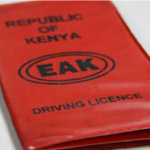Kenya’s second biggest media company, Standard Group, swung back into profit in full year 2016 after posting a loss the previous year, helped largely by falling operating costs and slightly higher revenues.
According to a statement from Standard, it made a net profit of Ksh198.5 million, up from a loss of Ksh289.6 million in 2015, an impressive 169% growth. Revenues were up 7 percent to Ksh4.82 billion, in a strong miraculous comeback that has surprised the media industry and the stock market.
Standard’s business which include newspapers, a radio and two television stations, websites and outdoor advertising, has suffered over the past few years, haemorrging cash while revenues fell. It was forced to restructure to stay afloat. But now it says operating costs fell 6 percent to Ksh4.41 billion, boosted by a massive staff layoff in which nearly 100 employees were sent home.
The Standard Media Group has defied many odds facing the media industry. Conventional media houses having been struggling against new-age digital rivals that have taken up a huge chunk of their audience and advertising.
Standard Group is home to the Standard newspaper, The Nairobian, Standard Digital, Radio Maisha, Kenya Television Network (KTN), KTN News and Outdoor Services. Virtually all these business lines are under attack from digital media and new entrants in the market, especially on broadcast.
Related >> Interview: Standard CEO Sam Shollei new strategy
Standard’s growth offers a glimmer of hope for other media houses that all is not lost for traditional media houses. In fact, the growth at Standard was attributed to a better performance from the television and radio segments, which showed strong recovery after the controversial digital migration in 2015 that saw TV stations go off-air for 19 days. Its Radio Maisha has grown to the top three national stations in Kenya.
The problem for Standard and its rivals like Nation, and Star is print which, according to the results, did not register any growth. Print media is in for more pummeling after government banned advertising in newspapers. But election-related advertising could offer some relief. “TV revenue increase is largely attributable to stable revenues over the year as the business stabilized. Radio revenue also increased due to strong leadership position and wider presence,” said Standard Group Company secretary Millicent Ng,etich.
[crp]
Latest market data puts KTN and newly-formed KTN News at position two and three respectively, while Radio Maisha has grown its audience to become the second most popular in the country.
Moving forward the company, led by CEO Sam Sholei, is confident that it is well equipped to withstand existing industry challenges and attain sustainable growth.
“The Group has embarked on a strategic plan whose main focus is to grow the broadcast and digital footprint, diversify customer offerings and enhance a performance driven workplace culture to promote efficiency and effectiveness in product and service delivery,” said the company.
The firm did not recommend a dividend payment in the year to allow further investment in the broadcast business.



















































![Pula Co-Founders and Co-CEOs, Rose Goslinga & Thomas Njeru. Pula provides agricultural insurance and digital products to help smallholder farmers manage climate risks, improve farming practices and increase their incomes. [ Photo / Courtesy ]](https://businesstoday.co.ke/wp-content/uploads/2021/01/Pula-Co-Founders-and-Co-CEOs-Thomas-Njeru-Rose-Goslinga.jpg)




























































Leave a comment